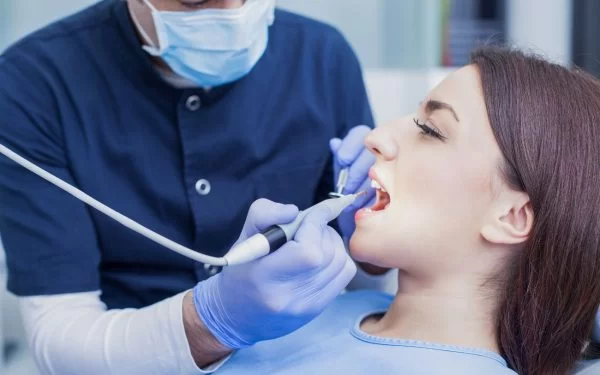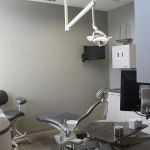
Who Is Eligible for NHS Dentistry? A Comprehensive Guide
If you're considering seeing an NHS dentist or are wondering if you qualify for NHS dental services, you're not alone. Many people, including myself, have had questions about NHS dental care and eligibility. As someone who's gone through the process, I’ve learned that while NHS dentistry offers affordable dental care, eligibility is based on several factors, including age, income, residency, and medical conditions. In this article, I’ll walk you through everything you need to know about who is eligible for NHS dentistry in the UK, the different treatment options available, and how to navigate the system to get the care you need.
1. What Is NHS Dentistry?
The National Health Service (NHS) in the UK provides dental care to people who are eligible, offering treatments that range from basic checkups and cleanings to more advanced procedures like fillings, extractions, and orthodontics. One of the biggest advantages of NHS dentistry is that it is subsidized by the government, meaning you pay a much lower fee compared to private dental care. For those of us who don’t have private dental insurance, NHS dentistry can be a lifeline.
But eligibility can vary, and it's essential to understand the criteria that determine who can access NHS dental services. I've learned over time that while NHS dentistry is available to many people, there are specific conditions that determine your eligibility, such as your residency status and personal circumstances.
2. Who Is Eligible for NHS Dental Care?
The general rule is that NHS dental services are available to everyone living in the UK, but there are specific groups that are automatically eligible. I’ve found that understanding these categories can help clarify who qualifies for affordable dental care:
- Residents of the UK: The first and most straightforward eligibility requirement is being a resident of the UK. As someone who has lived in the UK for many years, I know that being a legal resident generally means you're eligible for NHS dental care. If you’ve lived in the UK for at least 12 months, you typically qualify for services, regardless of whether you're employed or not.
- Children and Young Adults: All children under the age of 18 are automatically entitled to NHS dental care. Additionally, young adults between the ages of 18 and 25 may still be eligible for NHS treatment if they’re still in full-time education. I remember when my younger sibling was growing up, they had regular NHS dental appointments until they were 25, which was a huge benefit.
- Pregnant Women and New Mothers: Pregnant women and women who have had a baby within the last 12 months are entitled to free NHS dental care. This benefit also extends to those who are in the process of trying to conceive, which I found helpful when my cousin was pregnant and needed regular checkups.
- Low-Income or Unemployed Individuals: People who are receiving certain benefits such as Universal Credit, Income Support, or Jobseeker’s Allowance may qualify for free or reduced-cost dental treatment. If you're on a low income like I once was, you can apply for financial assistance that can cover part or all of your dental fees.
- People with Disabilities or Chronic Health Conditions: If you have a severe medical condition or disability that makes it difficult to access dental services, you may be eligible for free NHS dental care. Many of my friends with disabilities or long-term health issues have been able to access these services without any additional charges.
- Asylum Seekers and Refugees: Individuals who are asylum seekers or refugees are also eligible for NHS dental care. If you're an asylum seeker like I know some friends to be, you can apply for dental treatment under the NHS regardless of your legal status, which helps reduce healthcare barriers.
3. NHS Dental Charges: Who Pays and How Much?
While NHS dental care is generally more affordable than private dentistry, it's important to note that not all treatments are free. NHS dental charges are divided into three bands, which are designed to provide a clear and transparent pricing structure. As someone who has had to pay for NHS treatment in the past, I can say that these charges are usually far more reasonable than what you'd pay for private care.
- Band 1: This includes an examination, diagnosis, and advice. This typically costs around £23.80, which I found is an affordable option for a routine checkup.
- Band 2: This covers fillings, extractions, and other routine procedures. The charge for Band 2 treatment is usually around £65.20, depending on the complexity of the procedure.
- Band 3: This covers more complex procedures such as crowns, dentures, and bridges. The cost for Band 3 treatment is approximately £282.80, which is higher due to the more intricate nature of the procedures.
4. Who Does Not Qualify for NHS Dental Care?
While many people are eligible for NHS dental care, there are certain groups who might not be automatically entitled. I’ve encountered individuals who were unsure about their eligibility and needed clarification, so it's essential to understand who might not qualify for NHS services:
- Non-residents: If you're living in the UK on a temporary basis, such as on a tourist visa, you may not be eligible for NHS dental care. In such cases, private dental treatment is usually the only option.
- High-Income Individuals: People who are employed and earn above a certain threshold may have to pay full dental charges or opt for private care. If you're not on any benefits and have a steady income, be prepared to cover the cost of treatment yourself.
- Those Seeking Cosmetic Treatment: If you’re looking for cosmetic dental work, such as teeth whitening or veneers, NHS dentistry typically does not cover such treatments. As someone who once wanted a cosmetic dental procedure, I had to look into private options for that type of care.
5. How to Access NHS Dental Care
Getting access to NHS dental care is relatively simple, but there are some things to keep in mind. I’ve gone through the process a few times, and it’s usually straightforward. Here’s what you need to do:
- Find an NHS Dentist: You can search for an NHS dentist near you using the NHS website or by contacting your local NHS authority. Some areas have waiting lists for dental appointments, so it’s best to register early to secure a place.
- Register with the Dentist: Once you find an NHS dentist, you’ll need to register as a new patient. Some dentists may require proof of eligibility, such as your ID, proof of income, or address details.
- Book an Appointment: After registration, you can book an appointment for a checkup or any necessary treatment. If you're eligible for free treatment or reduced costs, make sure to inform the dentist's office when booking your appointment.







 Dr. David S. McGee, DMD5.0 (10 review)
Dr. David S. McGee, DMD5.0 (10 review) Dr. David Scharf - Long Island Periodontist & Dental Implants4.0 (234 review)
Dr. David Scharf - Long Island Periodontist & Dental Implants4.0 (234 review) Harbor Cove Dental5.0 (191 review)
Harbor Cove Dental5.0 (191 review) Perth Amboy Pediatric Dentistry & Orthodontics4.0 (455 review)
Perth Amboy Pediatric Dentistry & Orthodontics4.0 (455 review) All Star Dental Clinic4.0 (322 review)
All Star Dental Clinic4.0 (322 review) Coker Dental: Dr. William L. Coker, DDS4.0 (25 review)
Coker Dental: Dr. William L. Coker, DDS4.0 (25 review) The Importance of Oral Health Education During Pregnancy for a Healthy Pregnancy
The Importance of Oral Health Education During Pregnancy for a Healthy Pregnancy Best Tips for Brushing Your Teeth Properly for Healthy Gums: Essential Techniques for Oral Health
Best Tips for Brushing Your Teeth Properly for Healthy Gums: Essential Techniques for Oral Health Why Skipping Dental Checkups Can Lead to Bigger Oral Health Problems
Why Skipping Dental Checkups Can Lead to Bigger Oral Health Problems Advantages of Porcelain Dental Restorations
Advantages of Porcelain Dental Restorations How Can Diabetes Cause Tooth and Gum Problems? Preventing and Managing Oral Health Issues
How Can Diabetes Cause Tooth and Gum Problems? Preventing and Managing Oral Health Issues Healthy Habits for Promoting Good Oral Health and Hygiene: Tips for a Healthy Smile
Healthy Habits for Promoting Good Oral Health and Hygiene: Tips for a Healthy Smile